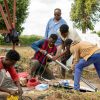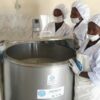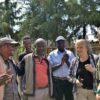“Access to finance is crucial”

Renewable energy solutions can save CO2 and generate value, as can be seen in the example of SGA Farms in Ghana. The company now irrigates its fields using solar power. Besides SGA Farms, Green People’s Energy has supported 81 other farms in purchasing solar pumping systems without intervening in the market. SGA Farms founder Bobby Gyesi praises this support, but says it will take much more for renewable energy to make a breakthrough.
Green as far as the eye can see. Green fruits hanging from tall papaya trees. Seedlings sprouting in a field next to them. The fields slope gently down to a dam. The owners of SGA Farms created it, collecting rainwater in it to water their plantations and fields all year round.
The family business grows papayas, avocados and coconuts on about 130 hectares for export, mainly to the UK and Germany, but also vegetables for local markets. The farm is located in Teacher Mante, less than 50 kilometres northwest of the capital Accra.
“We cultivate our fields according to strict international protocol strengen criteria,” says Bobby Gyesi, co-founder and president of SGA Farms. He emphasises how important socially and environmentally compatible farming is to his family. That is why the company uses a sophisticated drip irrigation system. “This saves up to 60 percent of water compared to conventional irrigation methods,” he says. It helps that papayas and coconut palms need little water in the dry season. Avocados, however, love water, he explains.
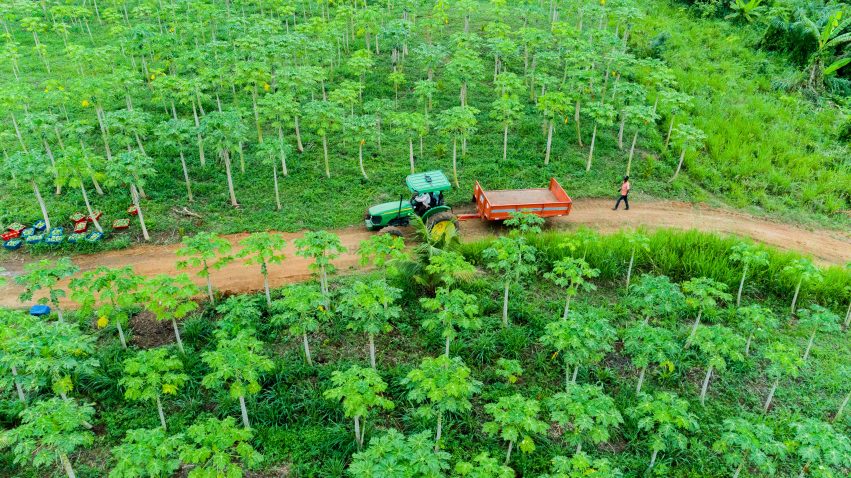
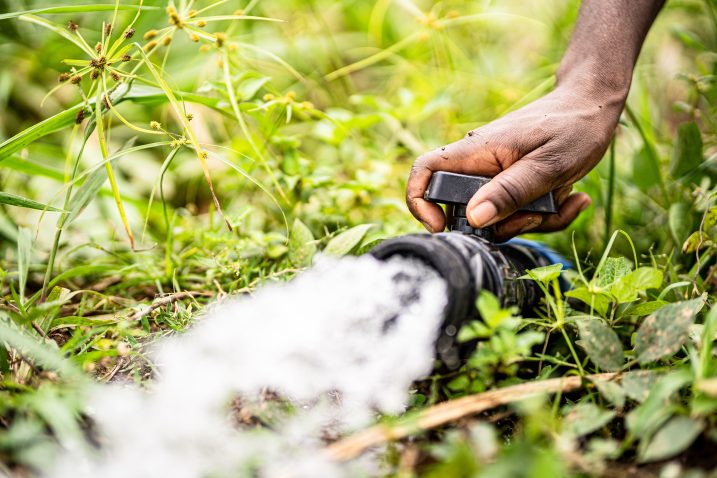
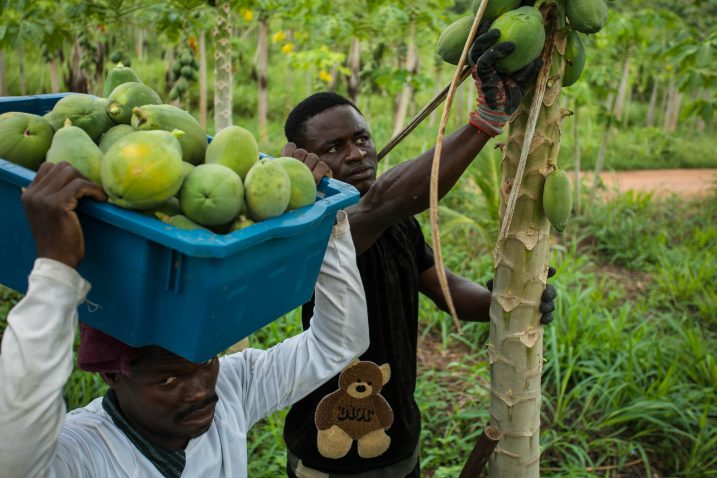
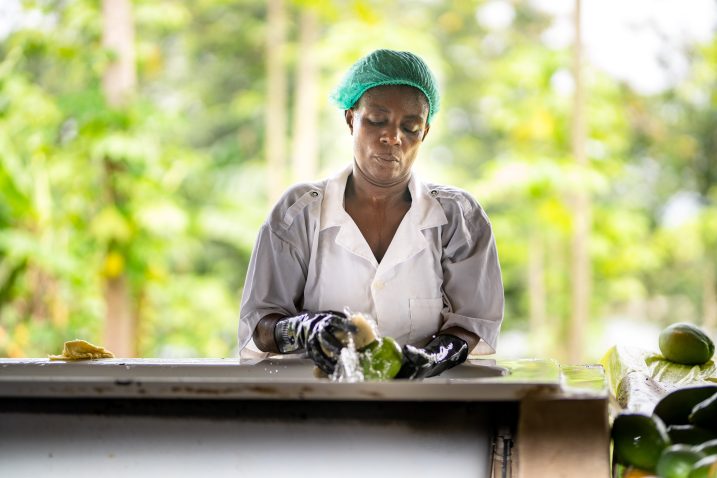
Since 2020, a 5 kW solar system has been powering the pump. SGA bought it with financial support from Green People’s Energy (GBE) in Ghana. And they do so directly from one of five traders GBE selected based on quality criteria. “The customers, for example Bobby Gyesi’s farm, were acquired by the traders themselves,” says Rafael Wiese, head of GBE Ghana. GBE validated every offer from the traders for technical completeness, checked water availability and rights during an initial on-site visit, and visited the farm again after installation to test the system and contractually accept it. Only then did GBE subsidise the installation company with 40 percent of the plant price. The effort was considerable, but in the meantime all 82 systems have been installed. “There are showcase projects all over Ghana that can convince farmers of the benefits of solar irrigation,” says Rafael Wiese.
Without the grant, financing would have been very difficult for Bobby Gyesi’s family and the other beneficiaries. “Banks currently charge between 30 and 35 percent interest on loans, and the government also taxes imported pumps and solar equipment. This makes it difficult for farmers and businesses to switch to renewable energy,” he criticises the current barriers to faster adoption of solar solutions. And he sees governments, manufacturers and (international) donors in responsibility.
Time to act
After all, he says, the solar-powered pump on his farm bears testament to the benefits of solar pumping systems day after day. “In the long run, these systems pay off, but it is difficult to raise the initial capital for procurement,” says Bobby Gyesi. After all, the systems cost between 6,000 and 8,000 euros, depending on their size.
Small farmers cannot afford such investments, especially in the country’s difficult economic situation. “The extremely high inflation and currency fluctuations are choking the market right now,” Rafael Wiese knows. Local banks lend money in Ghanaian currency only for a very short time and at horrendous interest rates. They are reluctant to embrace solar technologies, partly because are neither aware of the advantages nor the economic figures. This is why GBE has supported three universities in setting up education and courses that train not only solar technicians but also inform local bank employees about renewable technologies and their economic viability, so that they become part of the solution.

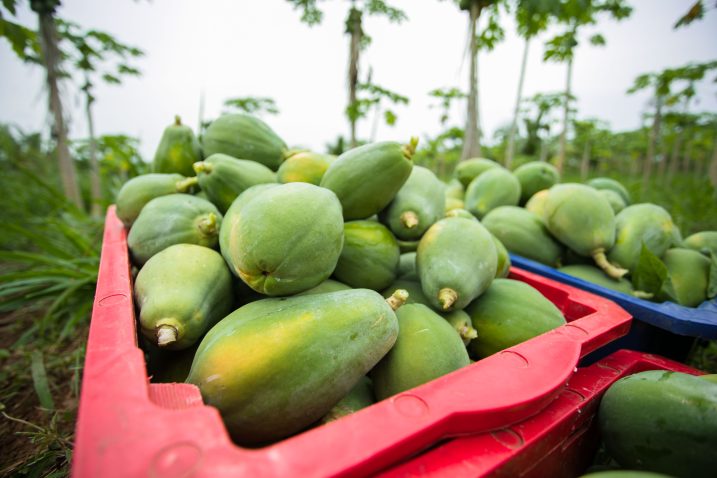
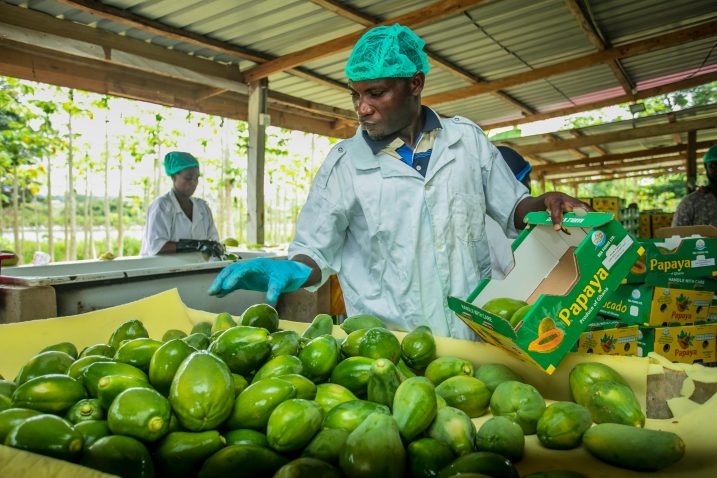
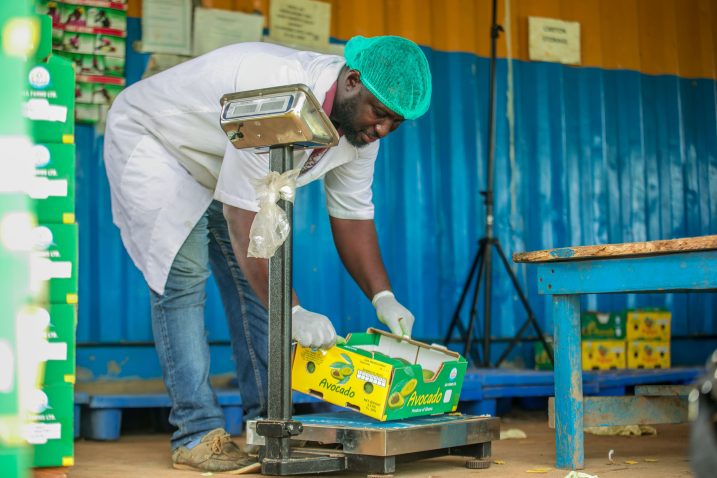
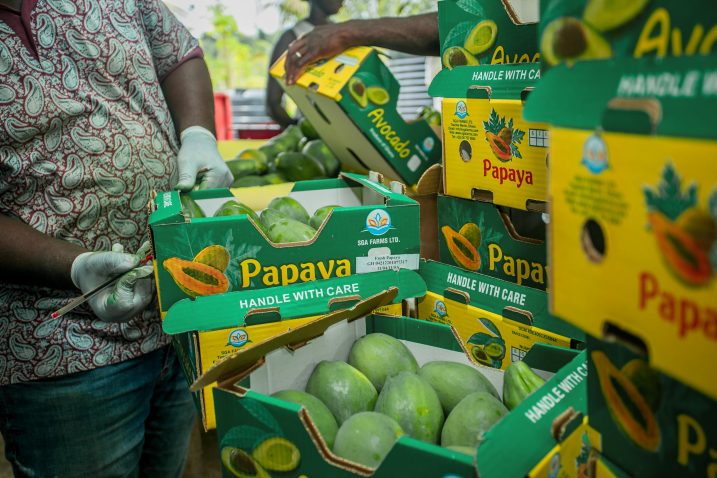
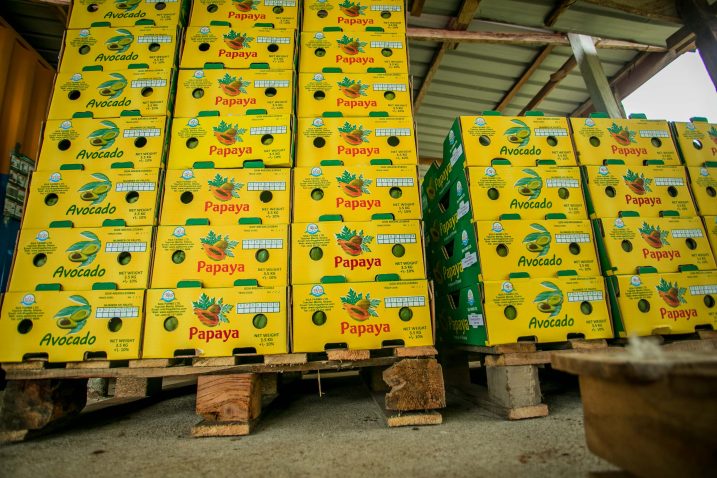
Rafael Wiese sees a slow shift in thinking among local banks. But it is precisely this pace that is a problem for Bobby Gyesi – and not only at the banks. “It is time to act,” said the SGA Farms co-founder at the conference “Decentralised Renewable Energy in Africa – Key to a global energy transition” of the Federal Ministry for Economic Cooperation and Development (BMZ) in Berlin on 27 March 2023, earning him great applause, especially from companies and initiatives developing renewable energy projects in Africa.
After all, supplying rural areas with clean energy at fair prices is the required for creating local value on the one hand, and replacing fossil fuels on the other. “Our solar pump enables completely CO2-free irrigation,” argues Bobby Gyesi. Previously, SGA Farms watered fields with a conventional pump, using 350 litres of diesel every month and contributing to pollution by the same token.
At the same time, year-round farming allows his company to employ workers longer. The company now has 25 permanent employees. Their number will increase, Bobby Gyesi predicts. In addition, freelancers pack papayas, avocados or coconuts for export once a week.
This local added value is urgently needed. In Teacher Mante, the farm, which was founded in 2018, is now one of the twenty largest employers, says Bobby Gyesi. However, he says, there is a need for significantly more jobs to offer prospects to the growing young population. “Everyone always talks about renewable energy and financing. But this should not be an obstacle, because we need to create many more green jobs in Ghana and Africa,” he criticised in Berlin.
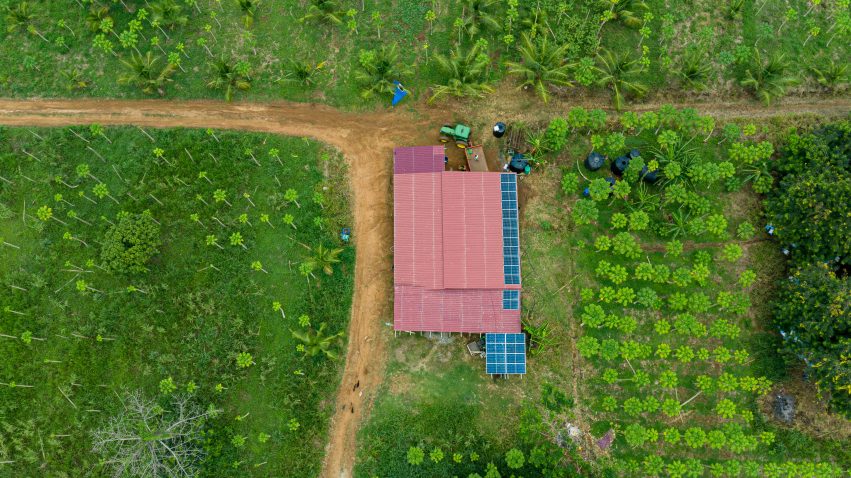
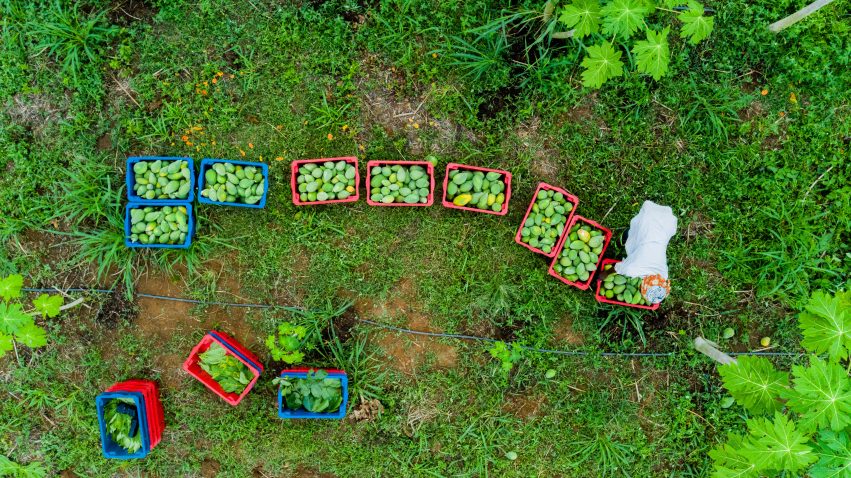
He sees a few levers that could be tightened: for example, manufacturers could produce renewable technologies more cheaply. Import duties, on the other hand, should be lowered to reduce procurement costs. Especially in East African countries like Kenya and Uganda, he sees governments on the right track. “They emphasise the need for the energy transition as well as its benefits. And they have created a friendlier environment for investment in renewable energy,” he says.
International donors, in turn, should simplify and speed up access to finance. “Africa hosts 60 per cent of the world’s best solar resources, but only one per cent of installed PV capacity,” writes the International Energy Agency (IEA). Bobby Gyesi refers to this and asks why. “It’s not the technical know-how, we have that. What is crucial is the lack of access to finance.” This bottleneck must disappear.
